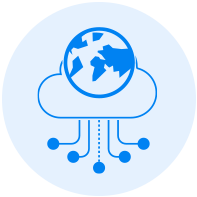The world’s largest utility data network
The Urjanet Utility Data Platform connects to more than 9,000 electricity, natural gas, water, waste, cable, and telecom providers across 52 countries.

The most powerful and complete utility data aggregation platform
Automatically access detailed utility bill data and PDF bill copies
Automatically access water and electricity interval meter data
Manage everything to do with utility data from one portal with easy-to-use web tools
Rapidly and securely capture utility account information from end users
Ensure accurate credentials and continuous utility data delivery
Get utility data flowing seamlessly into the application of your choice
Ensure accurate credentials and continuous utility data delivery
Explore free access to APIs and web tools in the developer sandbox
Urjanet provides consumer-permissioned utility data from thousands of utility, telecom and cable providers worldwide. By integrating alternative credit data from Urjanet into your credit modeling process, you can safely extend credit to millions of new applicants.
REQUEST A DEMOGain deeper visibility into your decline traffic with automated access to consumer and business utility, telecom, and cable bills. With alternative data for credit scoring, your business can open up new revenue streams, mitigate risk, and close the lending gap.
Assess creditworthiness of thin and no file applicants using direct-from-source data across 7 tradelines. Gain deeper visibility into their payment behavior and make more informed lending decisions.
Qualified applicants are hidden in your decline traffic. With accurate, reliable alternative data for credit scoring, you can turn decline traffic losses into revenue wins.
The call to expand credit access is increasingly competitive. Be among the first to leverage alternative credit data and reach emerging markets.
We make it easy to integrate direct-from-source utility, cable, and telecom data into your credit modeling process with meticulously designed APIs and a set of rich, pre-built UI components.
You’ll be up and running quickly with up to 12 months of payment history to drive rapid lending decisions. Download alternative credit data and PDF bill images directly from the Urjanet Console. Or, set up an automated data feed into your credit risk models through an API integration.
Smoothly integrate alternative credit data into your credit modeling process with an API integration. You design and control the entire user experience, sending data requests directly to Urjanet. We retrieve and deliver data back to you within minutes.
Use the Urjanet Connect UI toolkit to rapidly and securely link customers’ utility, cable, and telecom accounts. Get identity and payment history on demand – no development resources needed. Simply embed our iFrame code into your customer experience, or use our optimized landing page.
The Urjanet Utility Data Platform connects to more than 9,000 electricity, natural gas, water, waste, cable, and telecom providers across 52 countries.
Alternative credit data refers to non-traditional financial data such as utility payment history, employment records, and rental records.
Traditional credit scoring models have left millions of consumers underbanked. User-permissioned utility payment history as a source of alternative credit data can provide more context on an applicant, allowing you to make more informed decisions. The Center for Financial Services Innovation finds that utility bill payments are among the most reliable alternative data sources used in credit modeling and risk management.
The Urjanet Utility Data Platform captures and delivers data from our global network of utility providers through user-permissioned utility account access. Once an end user links their utility account to the Urjanet Utility Data Platform, our technology is able to programmatically access detailed payment data and PDF copies of bills directly from the utility’s customer portal. Click here to learn more about our tools for linking utility accounts.
Alternative credit data is made available through our API and portal within minutes of linking a utility account.
Urjanet will retrieve up to 12 months of historical payment data including name, address, statement date, due date, amount due, recent payment amount, and recent payment date. This data can be incorporated directly into your credit scoring and lending model.
No – we provide the data from a utility bill that can be used to make a credit decision.
Data is made available via API, or may be viewed and downloaded in a CSV file from the Urjanet Console.
No – Because Urjanet is completely user-permissioned, there is no repository of data to retro-test against. Urjanet offers quick start options that enable you to start collecting and testing utility data in minutes, with little to no development needed. Speak with one of our credit experts to learn more.
Yes. As part of our solution, we provide a copy of the original data source (typically a PDF copy of the bill) for auditing purposes. If any consumer inquiries arise, we will work closely with your team to handle them. Inquiries about FRCA compliance can be submitted to privacy@urjanet.com.
Urjanet is an active participant in the US, EU, Swiss Privacy Shield Framework. Click here to learn more.
Access to the Urjanet Utility Data Platform is secured by a combination of network security and authentication requirements, ensuring that only authorized personnel have access. Sensitive data is stored encrypted at rest using AES-256 encryption. Data is transferred both inside and outside our platform using SSL/TLS, SSH, and SFTP.
Have more questions about alternative data for credit scoring?
Keep an eye on your inbox for content updates from Urjanet.
|
Urjanet is now part of Arcadia! Together, we’re making it easier to unlock the data you need to develop innovative solutions that power the clean energy economy. Visit arcadia.com to learn more. |